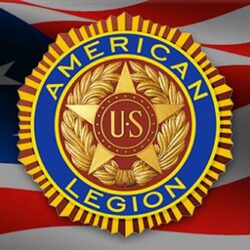VA’s National Telestroke Program (NTSP) recently began a new virtual training program for VA neurology residents, a first for the program since it began in 2017.
The NTSP is a nationwide VA program that provides acute stroke evaluation and treatment to 70 VA medical centers across the country through telemedicine. When a Veteran develops possible acute stroke symptoms, the VA medical center staff calls NTSP and the Telestroke neurologist responds within 10 minutes through a virtual platform to evaluate and assist in treating the Veteran.
NTSP initially developed the virtual simulation approach to support the implementation of Telestroke in VA facilities and to evaluate professional skills when hiring clinical staff. Now, the same process is being applied as an immersive learning experience for neurology residents at VA affiliate medical schools. The first two of these sessions were in Pittsburgh and Nashville, with a third session scheduled for Birmingham.
“We had the idea last year that our practice of simulation training could be helpful for neurology residents,” said NTSP Executive Director, Dr. William Musser. “In talking with residency program directors, we learned that residents were not getting much opportunity to learn about the use of telemedicine for patients with acute neurological symptoms, so we came up with several scenarios and decided to pilot them.”
Pictured above, telestroke neurologist Dr. Lee Chung with site patient care team during training simulation at Birmingham VA.
Residents find the training unique and helpful
The program conducted training sessions with 25 residents and fellows with plans to conduct more in April. Musser said the residents find the training both unique and helpful.
“We are interested not only in evaluating clinical skills but also in evaluating what are called telepresence skills, essentially bedside, or ‘webside’ manner,” he said.
The new training is exceptional in how the neurologist residents are learning. “This approach is called telesimulation. It’s evolved over time and COVID really launched it forward. This isn’t happening with a manikin in a sim lab. It’s a realistic environment set up with patient actors and physicians on our team playing roles. The learners are doing this completely remotely,” said Dr. Jane Anderson, director of Education, Quality and Research for NTSP.
The training gives the resident the opportunity to receive individual feedback from the patient and nurse role-players as well as the observers.
Dr. Laura Zabalgoitia recently participated in the Telestroke training and found it provided an in-depth critical stroke encounter in a safe and supervised environment.
“In our residency and fellowship training, we have exposure to telemedicine in outpatient settings but have little exposure to acute neurologic consultation via telemedicine,” said Zabalgoitia, a vascular neurology fellow at Vanderbilt University Medical Center.
Grateful for innovations like telemedicine to enhance Veteran care
Zabalgoitia said exposure to this type and caliber of training is critical to becoming comfortable with the telemedicine platform and to becoming proficient over time.
“There are small but important differences when engaging a patient over telemedicine. Learning how to examine the patient and utilizing bedside staff to assist in your exam is a skill just like any other in our training. The more often we have exposure to these simulated encounters, the better we will feel during a real acute neurologic encounter,” Zabalgoitia shared.
Zabalgoitia is in her final year of fellowship and worked with VA for almost nine years throughout her training. She appreciates the quality of care Veterans receive at VA. “It has been a highlight of my training to care for this patient population. VA is an excellent training venue for residents and fellows to provide not only high-quality but equitable care to our patients. I’m grateful for VA’s willingness to find innovations like telemedicine to enhance care to Veterans.”
The mission of training future health professionals for VA and the nation, established more than 78 years ago, is one of VA’s four statutory missions and is overseen by the Office of Academic Affiliations. More than 120,000 health professions trainees in over 60 clinical disciplines train at VA each year as they care for Veterans.
